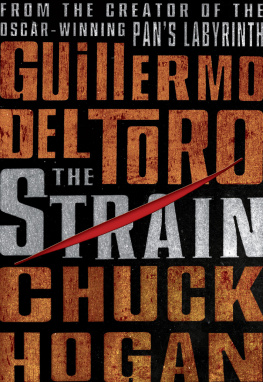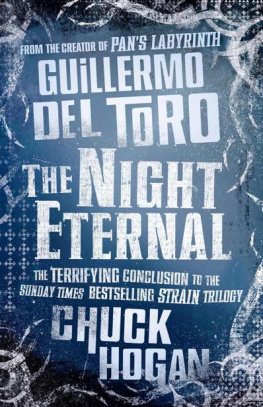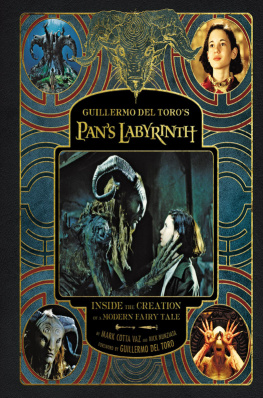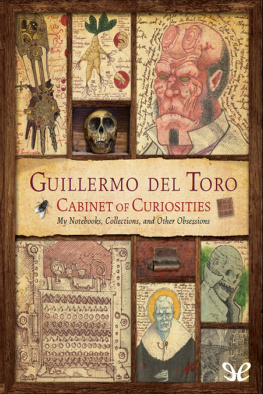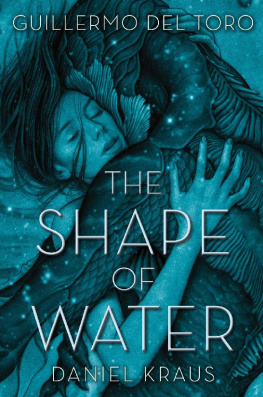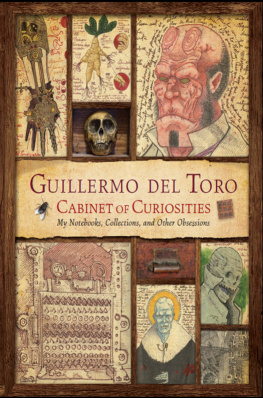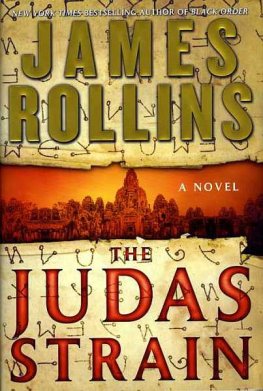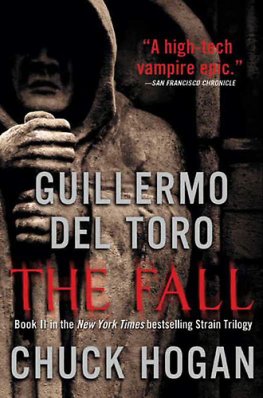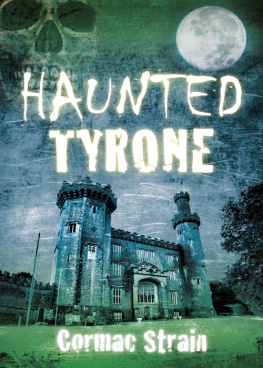Guillermo del Toro - The Strain. Book I of The Strain Trilogy
Here you can read online Guillermo del Toro - The Strain. Book I of The Strain Trilogy full text of the book (entire story) in english for free. Download pdf and epub, get meaning, cover and reviews about this ebook. year: 2009, publisher: HarperCollins, genre: Science fiction. Description of the work, (preface) as well as reviews are available. Best literature library LitArk.com created for fans of good reading and offers a wide selection of genres:
Romance novel
Science fiction
Adventure
Detective
Science
History
Home and family
Prose
Art
Politics
Computer
Non-fiction
Religion
Business
Children
Humor
Choose a favorite category and find really read worthwhile books. Enjoy immersion in the world of imagination, feel the emotions of the characters or learn something new for yourself, make an fascinating discovery.

- Book:The Strain. Book I of The Strain Trilogy
- Author:
- Publisher:HarperCollins
- Genre:
- Year:2009
- ISBN:978-0-06-189390-2
- Rating:4 / 5
- Favourites:Add to favourites
- Your mark:
- 80
- 1
- 2
- 3
- 4
- 5
The Strain. Book I of The Strain Trilogy: summary, description and annotation
We offer to read an annotation, description, summary or preface (depends on what the author of the book "The Strain. Book I of The Strain Trilogy" wrote himself). If you haven't found the necessary information about the book — write in the comments, we will try to find it.
The Strain. Book I of The Strain Trilogy — read online for free the complete book (whole text) full work
Below is the text of the book, divided by pages. System saving the place of the last page read, allows you to conveniently read the book "The Strain. Book I of The Strain Trilogy" online for free, without having to search again every time where you left off. Put a bookmark, and you can go to the page where you finished reading at any time.
Font size:
Interval:
Bookmark:
Guillermo Del Toro, Chuck Hogan
The Strain
Book I of The Strain Trilogy
To Lorenza, Mariana, and Marisa
and to all the monsters in my nursery:
May you never leave me alone
GDTFor Lila
CHThe Legend of Jusef Sardu
Once upon a time, said Abraham Setrakians grandmother, there was a giant.
Young Abrahams eyes brightened, and immediately the cabbage borscht in the wooden bowl got tastier, or at least less garlicky. He was a pale boy, underweight and sickly. His grandmother, intent on fattening him, sat across from him while he ate his soup, entertaining him by spinning a yarn.
A bubbeh meiseh, a grandmothers story. A fairy tale. A legend.
He was the son of a Polish nobleman. And his name was Jusef Sardu. Master Sardu stood taller than any other man. Taller than any roof in the village. He had to bow deeply to enter any door. But his great height, it was a burden. A disease of birth, not a blessing. The young man suffered. His muscles lacked the strength to support his long, heavy bones. At times it was a struggle for him just to walk. He used a cane, a tall stick taller than you with a silver handle carved into the shape of a wolfs head, which was the family crest.
Yes, Bubbeh? said Abraham, between spoonfuls.
This was his lot in life, and it taught him humility, which is a rare thing indeed for a nobleman to possess. He had so much compassion for the poor, for the hardworking, for the sick. He was especially dear to the children of the village, and his great, deep pockets the size of turnip sacks bulged with trinkets and sweets. He had not much of a childhood himself, matching his fathers height at the age of eight, and surpassing him by a head at age nine. His frailty and his great size were a secret source of shame to his father. But Master Sardu truly was a gentle giant, and much beloved by his people. It was said of him that Master Sardu looked down on everyone, yet looked down on no one.
She nodded at him, reminding him to take another spoonful. He chewed a boiled red beet, known as a baby heart because of its color, its shape, its capillary-like strings. Yes, Bubbeh?
He was also a lover of nature, and had no interest in the brutality of the hunt but, as a nobleman and a man of rank, at the age of fifteen his father and his uncles prevailed upon him to accompany them on a six-week expedition to Romania.
To here, Bubbeh? said Abraham. The giant, he came here?
To the north country, kaddishel. The dark forests. The Sardu men, they did not come to hunt wild pig or bear or elk. They came to hunt wolf, the family symbol, the arms of the house of Sardu. They were hunting a hunting animal. Sardu family lore said that eating wolf meat gave Sardu men courage and strength, and the young masters father believed that this might cure his sons weak muscles.
Yes, Bubbeh?
Their trek was long and arduous, as well as violently opposed by the weather, and Jusef struggled mightily. He had never before traveled anywhere outside his familys village, and the looks he received from strangers along the journey shamed him. When they arrived in the dark forest, the woodlands felt alive around him. Packs of animals roamed the woods at night, almost like refugees displaced from their shelters, their dens, nests, and lairs. So many animals that the hunters were unable to sleep at night in their camp. Some wanted to leave, but the elder Sardus obsession came before all else. They could hear the wolves, crying in the night, and he wanted one badly for his son, his only son, whose gigantism was a pox upon the Sardu line. He wanted to cleanse the house of Sardu of this curse, to marry off his son, and produce many healthy heirs.
And so it was that his father, off tracking a wolf, was the first to become separated from the others, just before nightfall on the second evening. The rest waited for him all night, and spread out to search for him after sunrise. And so it was that one of Jusefs cousins failed to return that evening. And so on, you see.
Yes, Bubbeh?
Until the only one left was Jusef, the boy giant. That next day he set out, and in an area previously searched, discovered the body of his father, and of all his cousins and uncles, laid out at the entrance to an underground cave. Their skulls had been crushed with great force, but their bodies remained uneaten killed by a beast of tremendous strength, yet not out of hunger or fear. For what reason, he could not guess though he did feel himself being watched, perhaps even studied, by some being lurking within that dark cave.
Master Sardu carried each body away from the cave and buried them deep. Of course, this exertion severely weakened him, taking most of his strength. He was spent, he was farmutshet. And yet, alone and scared and exhausted, he returned to the cave that night, to face what evil revealed itself after dark, to avenge his forebears or die trying. This is known from a diary he kept, discovered in the woods many years later. This was his last entry.
Abrahams mouth hung empty and open. But what happened, Bubbeh?
No one truly knows. Back at home, when six weeks stretched to eight, and ten, with no word, the entire hunting party was feared lost. A search party was formed and found nothing. Then, in the eleventh week, one night a carriage with curtained windows arrived at the Sardu estate. It was the young master. He secluded himself inside the castle, inside a wing of empty bedrooms, and was rarely, if ever, seen again. At that time, only rumors followed him back, about what had happened in the Romanian forest. A few who did claim to see Sardu if indeed any of these accounts could be believed insisted that he had been cured of his infirmities. Some even whispered that he had returned possessed of great strength, matching his superhuman size. Yet so deep was Sardus mourning for his father and his uncles and cousins, that he was never again seen about during work hours, and discharged most of his servants. There was movement about the castle at night hearth fires could be seen glowing in windows but over time, the Sardu estate fell into disrepair.
But at nightsome claimed to hear the giant walking about the village. Children, especially, passed the tale of hearing the pick-pick-pick of his walking stick, which Sardu no longer relied upon but used to call them out of their night beds for trinkets and treats. Disbelievers were directed to holes in the soil, some outside bedroom windows, little poke marks as from his wolf-handled stick.
His bubbehs eyes darkened. She glanced at his bowl, seeing that most of the soup was gone.
Then, Abraham, some peasant children began to disappear. Stories went around of children vanishing from surrounding villages as well. Even from my own village. Yes, Abraham, as a girl your bubbeh grew up just a half-days walk from Sardus castle. I remember two sisters. Their bodies were found in a clearing of the woods, as white as the snow surrounding them, their open eyes glazed with frost. I myself, one night, heard not too distantly the pick-pick-picksuch a powerful, rhythmic noise and pulled my blanket fast over my head to block it out, and didnt sleep again for many days.
Abraham gulped down the end of the story with the remains of his soup.
Much of Sardus village was eventually abandoned and became an accursed place. The Gypsies, when their carriage train passed through our town, told of strange happenings, of hauntings and apparitions near the castle. Of a giant who prowled the moonlit land like a god of the night. It was they who warned us, Eat and grow strong or else Sardu will get you. Why it is important, Abraham. Ess gezunterhait! Eat and be strong. Scrape that bowl now. Or else he will come. She had come back from those few moments of darkness, of remembering. Her eyes came back to their lively selves. Sardu will come.
Font size:
Interval:
Bookmark:
Similar books «The Strain. Book I of The Strain Trilogy»
Look at similar books to The Strain. Book I of The Strain Trilogy. We have selected literature similar in name and meaning in the hope of providing readers with more options to find new, interesting, not yet read works.
Discussion, reviews of the book The Strain. Book I of The Strain Trilogy and just readers' own opinions. Leave your comments, write what you think about the work, its meaning or the main characters. Specify what exactly you liked and what you didn't like, and why you think so.

